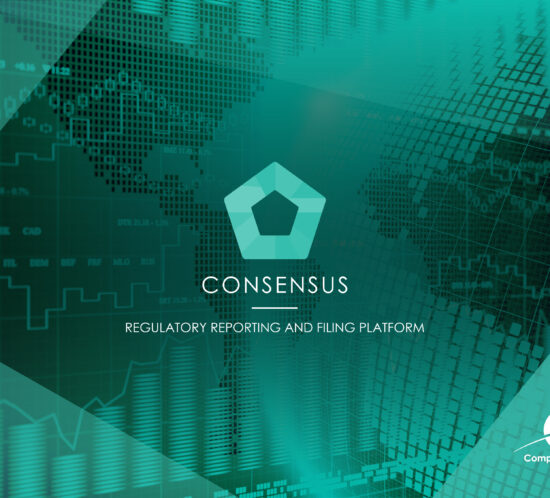How Do You Supervise for SEC Pay-to-Play Violations?
If you wanted more information about the contours of the SEC’s Pay-to-Play Rule, or how the SEC may enforce it, three recent Settlement Orders against large investment advisers for “over de minimis” political contributions provide some insight regarding one of the prohibitions: Contributions by Covered Associates to certain Government Officials over the specified Exception amount (capitalized words are terms in the SEC’s rule). If a Covered Associate makes a prohibited Contribution, the Rule requires the adviser to take a two-year time out from receiving fees from the relevant Government Client or Investor. Here are some reminders and takeaways, from the language of the respective Settlement Orders:
- the SEC will enforce the Rule against exempt reporting advisers
- the Rule can apply to contributions to a covered candidate even if the candidate does not win the election
- the Rule can apply to candidates for federal office
- the Rule does not require a showing of quid pro quo or actual intent to influence an Official or Candidate
- the Rule can apply to Contributions made after the Government Entity has invested with the adviser
Interestingly, in some instances, the Covered Associates had requested and/or obtained a Returned Contribution (the Rule outlines a procedure for this). The Orders are not clear on whether a Returned Contribution could have cured the violation, or avoided the enforcement proceeding; in all instances where there was a returned contribution, there also had been other over de minimis Contributions.
If you have or may have government clients or investors, you must be monitoring contributions and payments and otherwise preventing Pay-to-Play violations. Although some of the contributions in these cases were large, any amount over the specified de minimis amounts will be a violation. (Here, we are just talking about violations under the SEC’s Rule; state and local regulations have their own requirements, and many may prohibit certain contributions of any amount.) Remember, if you are hiring a new employee who will come within the definition of a Covered Associate–either by Rule or your policy–you must confirm whether s/he made relevant contributions in the past, before joining your firm–either 2 years or 6 months depending on the new employee’s position. Take this time to do Pay-to-Play training for your firm, particularly as we are heading into mid-term election season. Ascendant Compliance Management – a CSS Company – often recommends that all contributions are pre-cleared to ensure compliance with the Rule, and we recommend compliance officers check public websites that provide candidate and donor information.
This Pay to Play Alert originally appeared in Compliance Matters, a weekly regulatory enforcement alert provided to subscribers of Ascendant Compliance Manager (ACM) – a CSS solution.
Also with ACM, Covered Associates and employees can preclear political contributions through the ACM Code of Ethics Module. Through ACM, compliance teams can monitor employee personal trading, political contributions, and gifts; manage policies; and distribute trainings—all through a single platform that leverages the industry’s preeminent technology. Contact us at info@ascendantcompliance.com or (860) 435-2255 to schedule a demo.
Upcoming ComplianceCast™: The Compliance Professionals Guide to Effective Trade Desk Monitoring
Hamilton Lane Announces Successful Form ADV Filing Through Consensus
Leading alternative investment management firm Hamilton Lane recently announced that it successfully filed its Form ADV using Compliance Solutions Strategies’ Consensus platform.
“Consensus simplified our Form ADV reporting process,” Hamilton Lane Chief Compliance Officer Fred Shaw said in a press release marking the announcement. “We leveraged the platform’s automated data upload functionality to report efficiently and ahead of deadline.”
Hamilton Lane also plans to use Consensus to complete Form PF, AIFMD Annex IV, Form 13F and TIC forms reporting.
For more, read the press release on The Associated Press website.
VIDEO: Introducing Compliance Solutions Strategies
CSS Solution Silverfinch Welcomes TISA & PIMFA MiFID II Initiative
In late June, PIMFA, the UK wealth management association and TISA, the Tax Investment and Savings association published the “MiFID II Feedback Template,” to be known as the EFT. They also published a “Distributor Reporting Guide” to assist firms with implementation and understanding.
The two together are the first steps in defining a reporting standard for MiFID II upstream reporting from distributors to fund product manufacturers to allow them to comply with sales suitability reporting based on the target market of products.
In addition to the draft guide a Q&A document was also issued to help distributors make compliant returns to asset managers.
The draft template and guide have been developed by a cross industry working group consisting of TISA, PIMFA, the IA alongside leading asset managers and distribution businesses.
Market feedback on the proposed template closed on July 12. The working group will now meet with the Financial Conduct Authority (FCA) and the European Securities and Markets Authority (ESMA) to inform regulators of the approach in advance of issuing the final versions.
PIMFA & TISA also announced their call for firms across the sector to join a user group to test the template and ensure that it can be meaningfully incorporated into firms.
Silverfinch – a CSS solution – welcomes the approach by both TISA and PIMFA to standardize the reporting requirements from distributors to manufacturers and is already working with clients on the distribution of data using the draft templates. Feedback on testing with live clients will be provided to the working group by Silverfinch to ensure the industry has a robust solution to the reporting requirements during 2018 and onwards.
Do Your Fund Documents Clearly Disclose Receipt of Accelerated Monitoring Fees?
Somewhat more reminiscent of the broken-windows enforcement era, two affiliated private equity advisers managing billions settled with the SEC on charges that they failed to make pre-commitment disclosures in fund governing documents related to accelerated fees received from portfolio companies.
Interestingly, according to the Settlement Order, the advisers had made some disclosures in fund documents about receipt of fees from portfolio companies; they had provided semi-annual financial reports to investors which gave the amount of accelerated fees; they had disclosed in Form ADV that they may receive accelerated fees; and they had shared the earnings with investors. The SEC focused on the lack of pre-commitment disclosures. The Order notes, without stating if this could have cured the violation, that the advisers did not consult the Limited Partner Advisory Committee, or seek the review and approval of the LPAC for receiving accelerated fees.
As a result of this practice of receiving accelerated fees without adequate pre-commitment disclosure, according to the Order, the advisers negligently violated Advisers Act Section 206(2) (fraud), Section 206(4) and Rule 206(4)-8 (obligations to investors), and Rule 206(4)-7 (the compliance program rule).
This case signals the SEC’s laser focus on fund document language and the timing of disclosures. Avoid Enforcement through clear and conspicuous language in your fund documents, or contact us to help you work through remedial steps.









